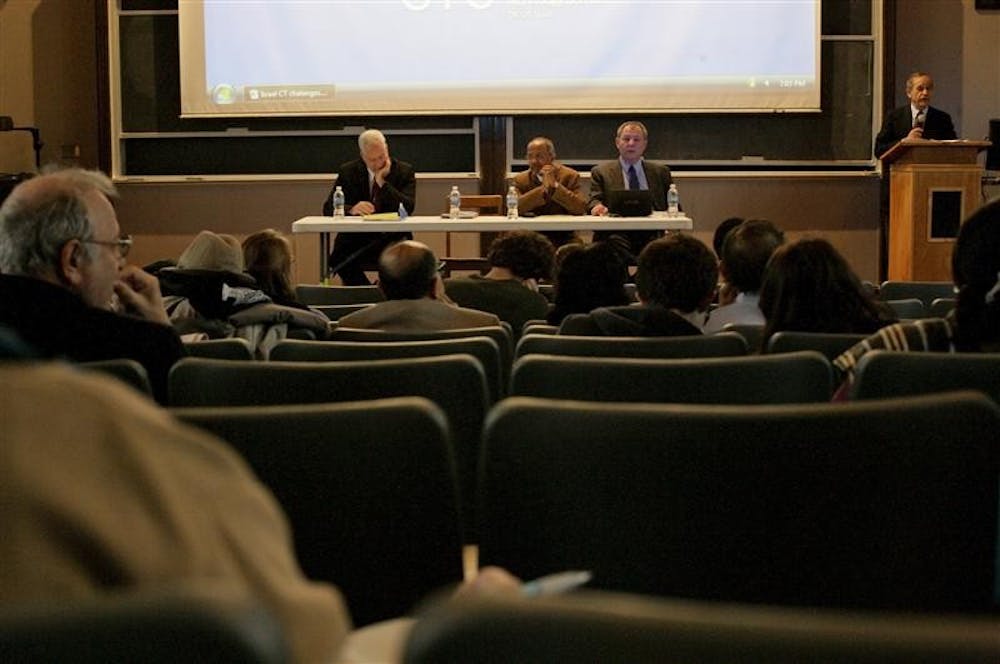Sumit Ganguly, political science professor and India studies program director, shared warning words with students and faculty Wednesday during a symposium on global terror.
“If you think we are nicely ensconced here in a bubble, think again. Al-Qaeda has not given up on its goal to harm Americans,” he said.
Ganguly, along with Boaz Ganor of the International Institute for Counter-Terrorism in Herzliya, Israel, and central Eurasian studies professor Kemal Silay, shared responses from terrorism in India, Israel and Turkey, respectively. They each spoke of how these experiences connected to America.
“Many Americans become complacent,” Ganguly said. “They say, ‘Why should I care? It’s just a bunch of foreigners getting blown up.’”
Ganguly said the end of complacency will stop when the media and government decide to stop screening out information that seems too negative. He also said events in New Delhi and Bombay were precursors to the devastation of the 2008 Mumbai attacks.
“There is a lot that gets ignored,” Ganguly said. “You heard about the Mumbai attacks that had India in terror for three days beginning November 26, 2008. But most people don’t know about the attack that killed 41 people at the Indian Embassy gates in July of that same year.”
He said Indian responses to those attacks are “dilatory, ad-hoc and idiosyncratic,” citing corrupt police, a lack of national capability to have uniform intelligence operations and religious profiling of Muslim men after the attacks as reasons why.
Ganor mentioned perceptions of Israel in Indiana.
“Being here in Indiana, so many people probably look at Israel as a normal country, when it is actually plagued by terror,” he said.
He cited various bombings, suicide attacks and organized and personal initiative attacks as reasons why so many Israelis were dying. These various forms of killing are executed by the Global Jihad, Hezbollah and Hamas terrorist groups, which Ganor said received state sponsorship and had access to modern, sophisticated technology.
Ganor said the threat of international terrorism, which is largely sponsored by groups like the Global Jihad, is a much bigger threat to safety and humanity.
“They operate on the true belief that no one state is immune to threats,” he said. “To be a terrorist today, there is no room for compromise.”
He discussed the international debate of the Iraq War on terrorism.
“Is it a war, or is it not a war?” he said. “It’s a religious war of ideas, a battle of the minds. The only way to understand how to win the war rests on the shoulder of Muslims themselves.”
Freshman Sarah Twait said she believed the symposium was eye-opening, and it was good to see how Americans can learn from terrorism threats.
“It’s terrifying to see and hear multiple speakers describe the same types of attacks on their specialized countries and know that these terrorists have no plan of stopping until their ultimate goal is met,” she said.
Moderator and English professor Alvin Rosenfeld shared a quote from President Barack Obama’s inauguration speech, saying he agreed with Obama’s emphasis on defeating international terrorism.
“‘We say to you now, our spirit is stronger than ever and will not be broken,’” he said. “‘We will not back down. We will defeat you.’”
Symposium warns of terrorism

Get stories like this in your inbox
Subscribe





